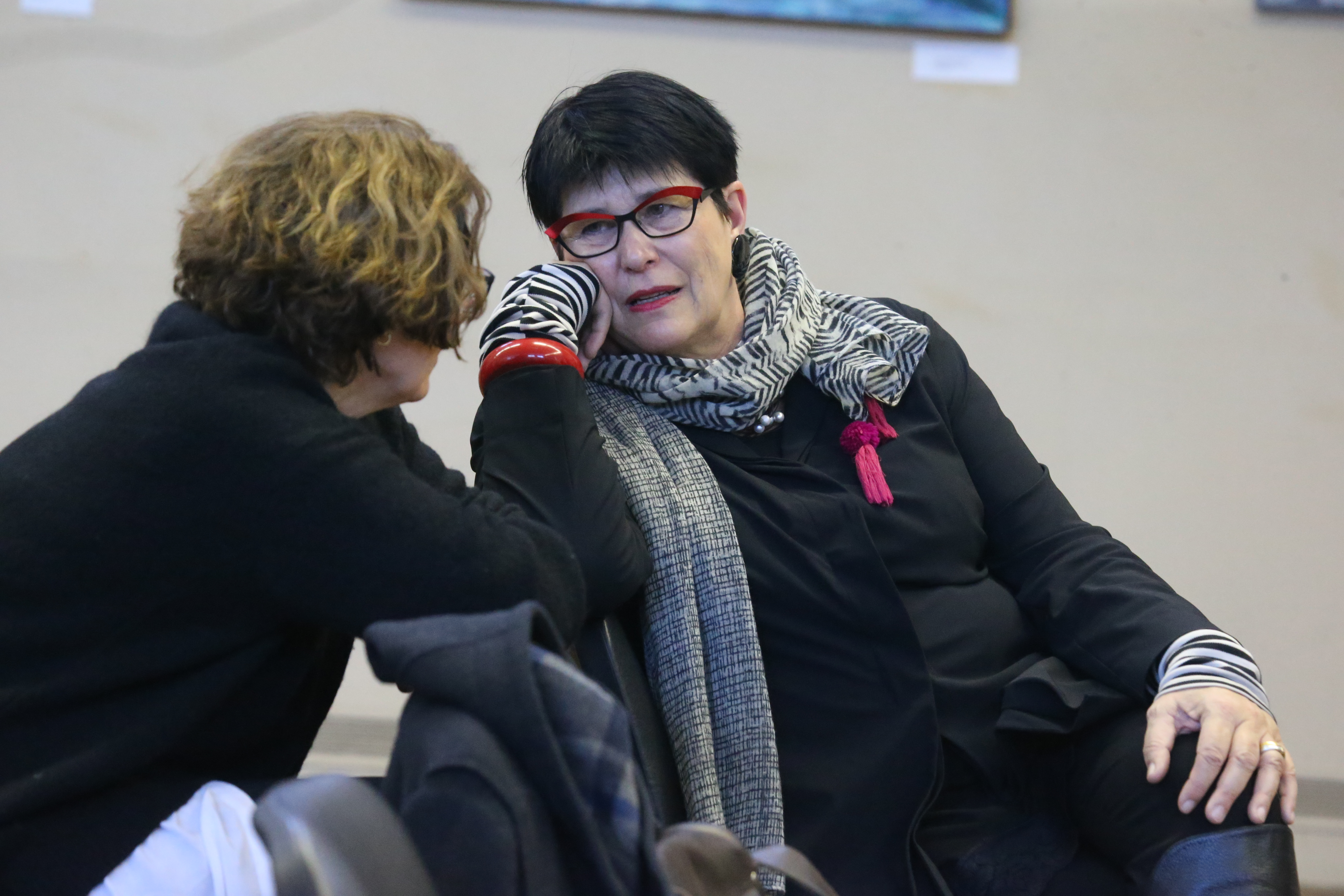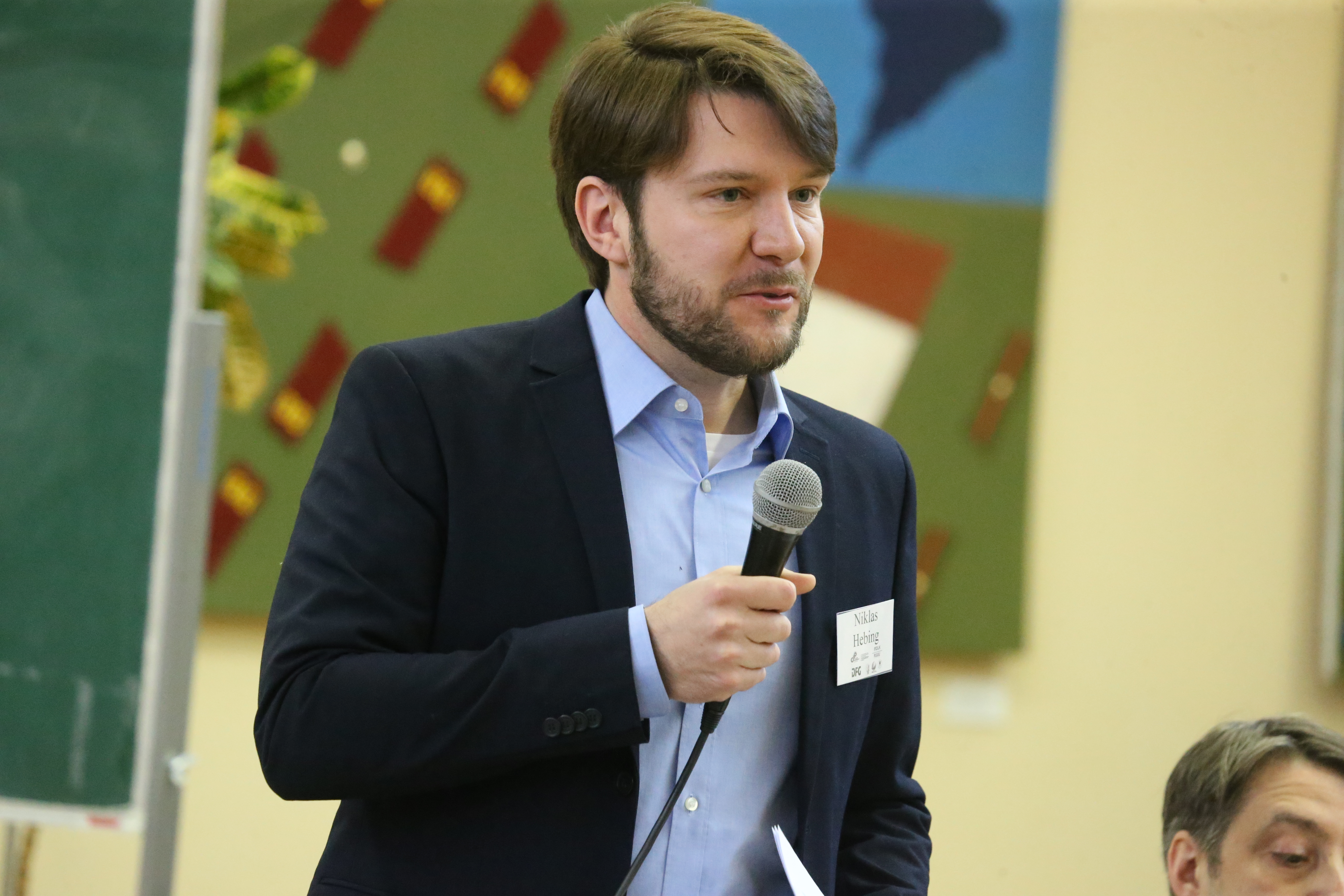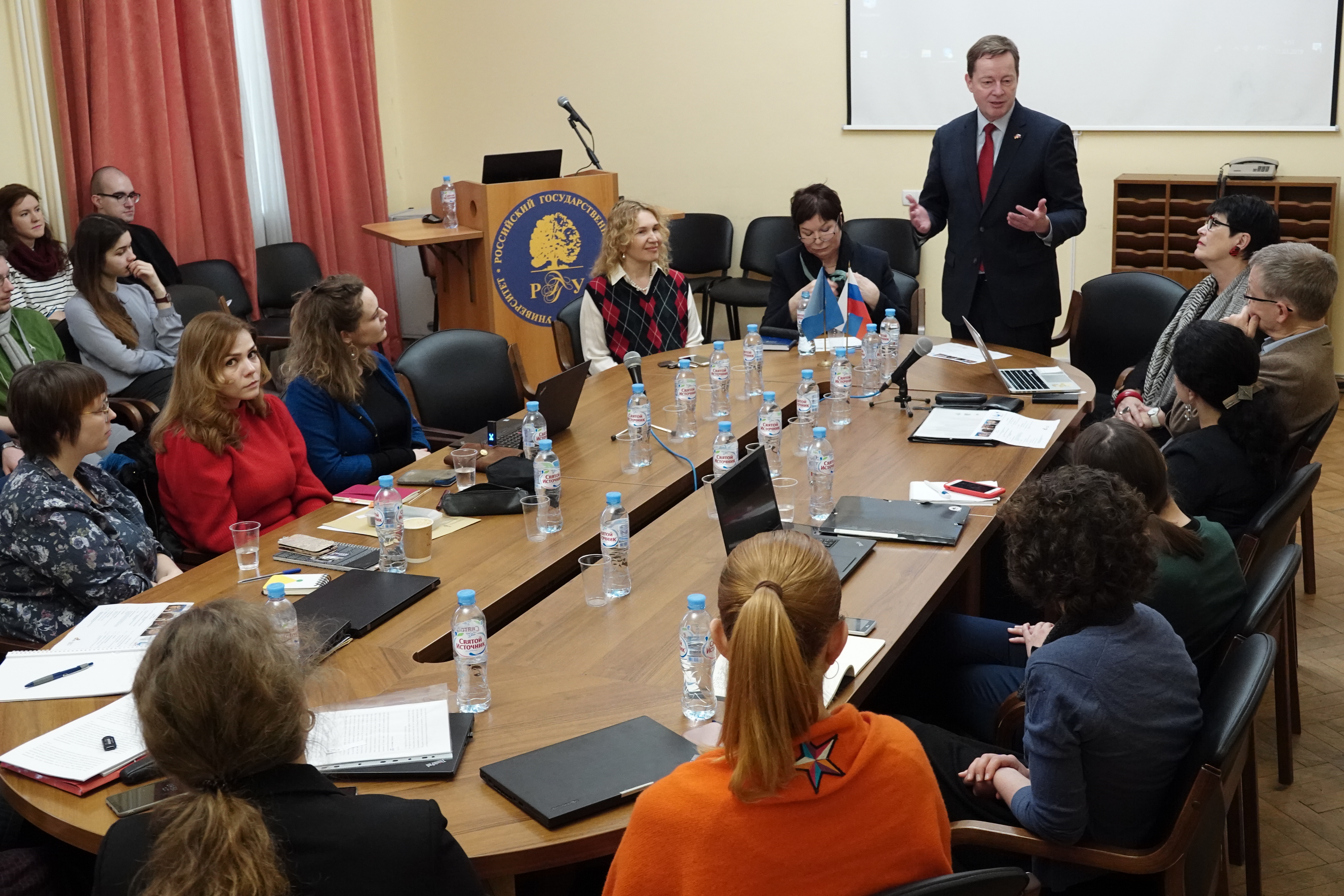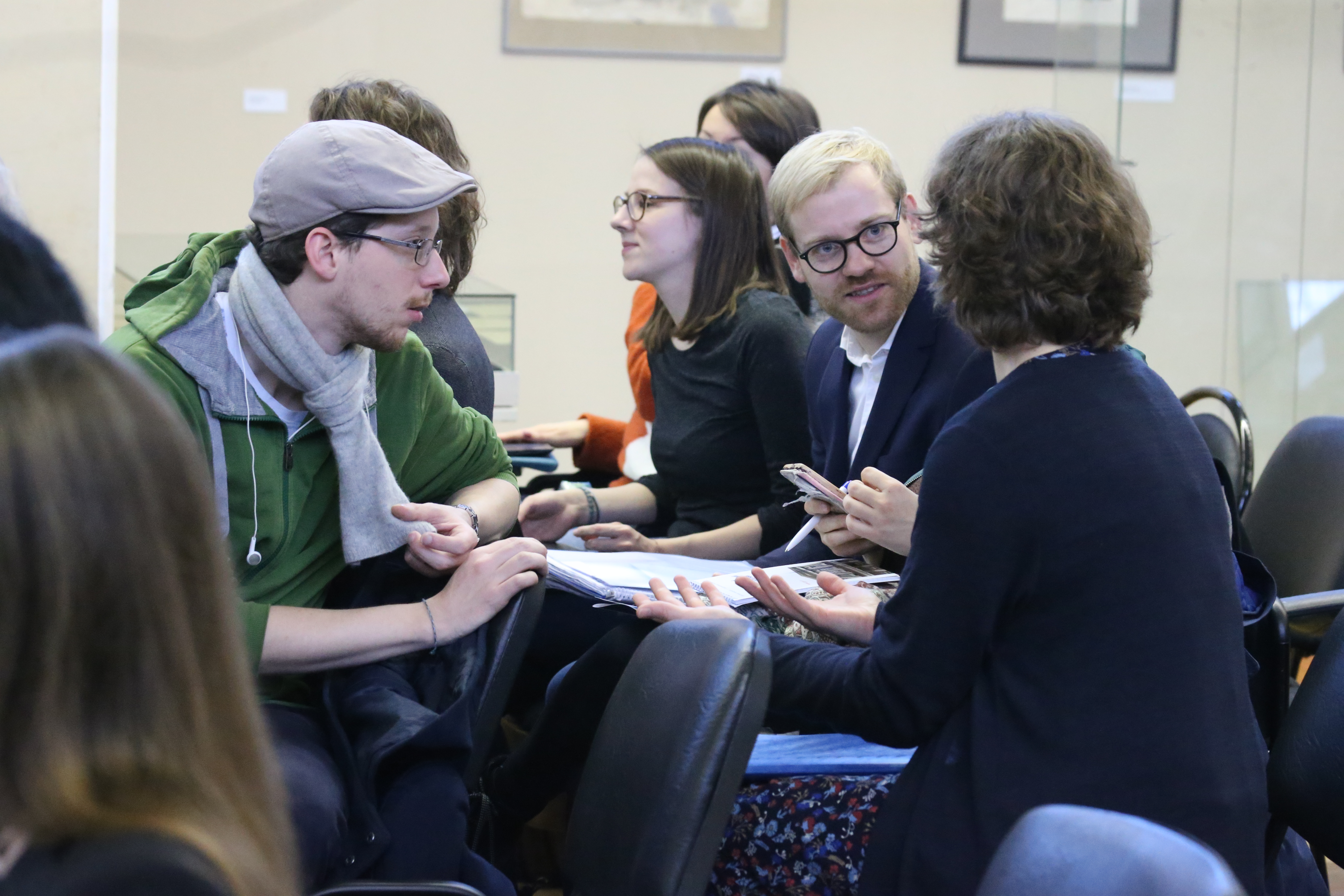International Conference and Symposium of German-Russian International Research Training Group 1956 in Moscow
(25.03.19) In mid-March, a conference on “European Avant-gardes Around 1900. Contact – Transfer – Transformation” was held at the Russian State University for the Humanities (RGGU) in Moscow. The conference took place within the framework of the German-Russian Research Training Group IRTG 1956.
Prof. Elisabeth Cheauré, spokesperson for IRTG 1956, in conversation
© RGGU
To open the three-day event, Prof. Elisabeth Cheauré, the German spokesperson for the IRTG, Niklas Hebing, Programme Officer for Humanities and Social Sciences at the Deutsche Forschungsgemeinschaft (DFG, German Research Foundation) and representatives of RGGU welcomed the approximately 30 participating researchers from France, Austria, England, Germany and Russia. The international conference considered the multiple movements for aesthetic renewal in the ‘avant-garde’ around 1900 as a pan-European phenomenon and a melting pot of different cultures, examining this phenomenon from a cultural studies perspective with the aid of scholarly approaches to literature, art and theatre and the history of technology.
Prior to the event, IRTG 1956 held its 7th symposium on “Cultural Transfer and ‘Cultural Identity’ – German-Russian Contacts in the European Context”. The relevance of the symposium in the current German-Russian Year of University Cooperation and Research 2018-2020 was emphasised by the head of the department of culture at the German embassy in Moscow, Jan Kantorczyk. The symposium is a regular format that enables doctoral researchers in the DFG-funded Research Training Group to present their own research results and discuss different approaches in cultural transfer research as well as cultural contacts and their impacts on the construction of cultural and national identity in the German-Russian context.
RGGU has a number of traditional links with German universities. This cooperation is especially visible in the successful partnership with the University of Freiburg within the framework of the joint Research Training Group, which last year was successfully evaluated by the DFG and will now be funded for a further period of four and a half years. Research Training Groups such as IRTG 1956 are university-based institutions designed to support early career researchers, which can receive DFG funding for up to nine years. Their main aim is to train doctoral researchers within a thematically focused research programme and a structured qualification programme. They are designed to provide intensive preparation for the complex world of professional research while encouraging early independence. International Research Training Groups also enable intensive exchange between two countries. The research and study programmes are developed jointly and dual supervision is offered.



